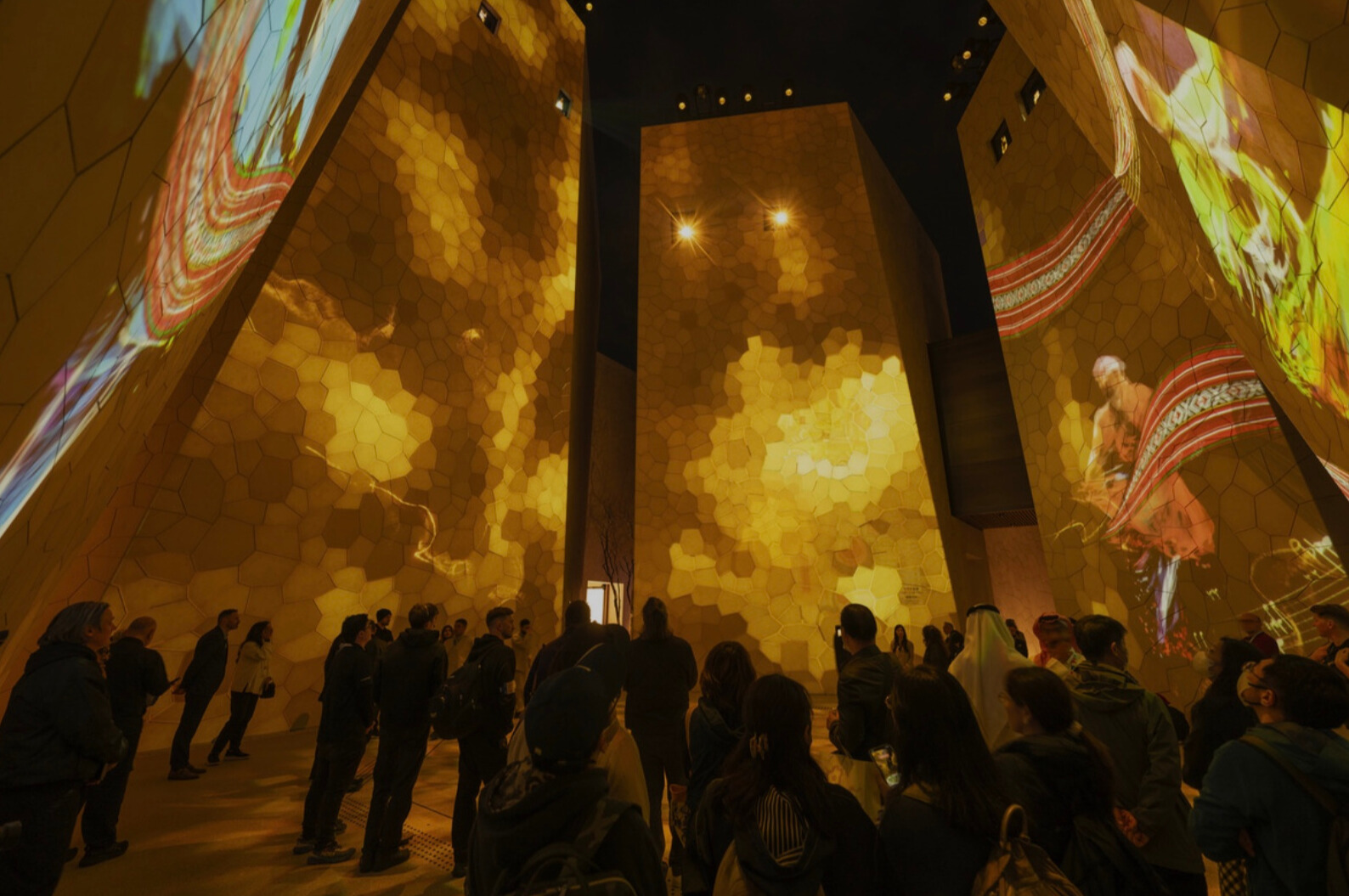Expo Osaka 2025 - Articulating Identity Through Culture-Centric Experience Design

The Saudi Pavilion at Expo Osaka 2025 marks a pivotal evolution in how nations engage with world expositions-transforming them from occasional showcases into scalable, experience-based systems that embody national identity and strategic foresight.
Designed by Foster + Partners, the Pavilion merges architectural storytelling with policy vision, converting Saudi Arabia's cultural heritage into interactive environments and its programmatic elements into living indicators of progress. Within its first 70 days, the Pavilion welcomed over one million visitors, becoming one of the most visited attractions at the Expo. On May 14, 2025, it recorded 18,000 visitors in a single day-a testament to its global resonance.
Its innovative fusion of design and diplomacy earned the Pavilion the Gold Prize for Cultural Architecture – Interactive and Experiential Spaces at the 2025 New York Architectural Design Awards, confirming Saudi Arabia's capability to create world-class cultural assets that move beyond aesthetics into systemic impact.
Key Shifts Reflected in Pavilion Execution
Purpose-Driven Spatial Strategy The Pavilion reinterprets traditional Saudi architectural codes to guide visitors through spaces of reflection, interaction, and co-creation. By aligning visual power with environmental excellence, it mirrors the Kingdom's sustainability commitments and cultural depth.
Culture as a Systemic Enabler Hosting over 1,100 activities, from panels on AI and creative industries to educational and sports programs, the Pavilion reframes culture as an economic catalyst, innovation accelerator, and talent builder-illustrating how cultural programming now functions as an engine of development.
Human-Centered Experience Design Accessible multi-sensory tours connect themes of urban growth, marine preservation, and digital transformation through immersive storytelling. This inclusive design philosophy ensures that culture speaks not only through form but through empathy, equity, and experience.
Data-Driven Cultural Diplomacy By tracking visitor flow, engagement levels, and sentiment in real time, the Pavilion applies a data-first approach to cultural policy-making, converting cultural engagement into measurable national capital-both quantitative and qualitative.
Trend Analysis: Culture-Centric Experience as Strategic Necessity
Saudi Arabia's participation at Expo Osaka aligns with a global movement that positions culture as the strategic backbone of national innovation, diplomacy, and growth.
- Narrative Sovereignty - Nations are reclaiming authorship of their stories through immersive, self-made environments that redefine international perception beyond legacy narratives.
- Experience as Infrastructure - The success of modern pavilions now follows capital project logic, where cultural assets are evaluated not by footfall alone but by their long-term socio-economic and reputational returns.
- Culture × Innovation Convergence - Culture now converges with education, AI, sustainability, and sport, shaping the foundations of global innovation ecosystems.
- Localized Authenticity, Global Resonance - The Saudi Pavilion demonstrates how deeply rooted authenticity, when paired with universal themes, becomes a differentiating force in global dialogue.
- Legacy-Embedded Design - By integrating strategic foresight into architecture and programming, the Pavilion ensures that cultural investment yields enduring economic, diplomatic, and reputational dividends.
Looking Ahead: From Osaka to Riyadh
As Expo Osaka concluded on October 13, 2025, its final week set the stage for the next global gathering in Riyadh in 2030-highlighting the continuity of Saudi Arabia's cultural diplomacy and innovation leadership.
On October 10, the key talk "Expos in a New Era and the Significance of Theme Weeks" brought together global experts including Ridha Shaikh, Chief Officer of International Participants & Stakeholder Management at Expo 2030 Riyadh Company; Dr. Tarek Oliveira Shayya, former Executive Vice Chairman of Expo 2020 Dubai; and Dr. Hashizume Shinya, Theme Week Supervisor for Expo 2025 Osaka. The discussion explored how future Expos can serve as platforms for meaningful exchange and collective action in a rapidly changing world.
On October 12, BIE Day commemorated the Expo's achievements with speeches from BIE and Japanese officials, cultural performances by the organizing teams of Expo 2027 Belgrade and Expo 2030 Riyadh, and the Official Participant Awards Ceremony, where the winners of the Osaka–Kansai Expo Awards and recipients of the BIE Medals were announced.
The Closing Ceremony, held on October 13 at 2 p.m. (JST), was live-streamed globally and concluded with the Flag Parade - symbolizing the handover of the global stage from Osaka's celebration of cultural innovation to Riyadh's promise of shaping the next era of human progress through experience-led design.


